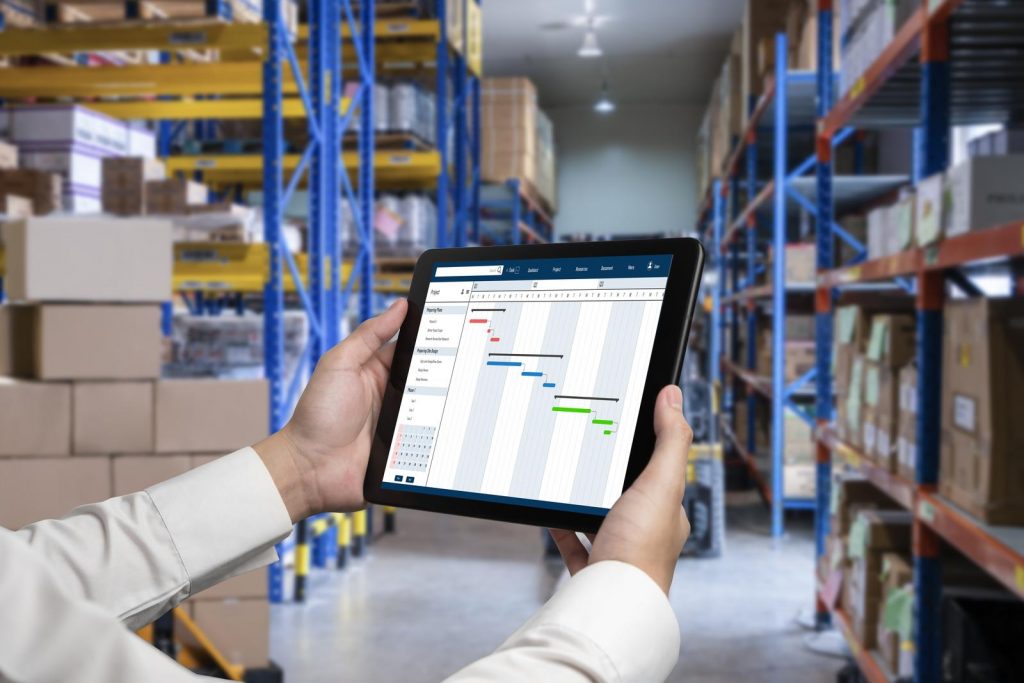Artificial intelligence (AI) has the potential to revolutionize the way that supply chain services are conducted and can greatly improve the efficiency and effectiveness of supply chains. In this blog post, we will explore the various ways in which AI is already impacting supply chain services and how it is likely to continue to do so in the future.
One of the main ways that AI is impacting supply chain services is through the use of machine learning algorithms. These algorithms can analyze large amounts of data and identify patterns that may not be immediately apparent to humans. This can help to optimize various aspects of the supply chain, such as routing, inventory management, and demand forecasting. Another way that AI is being used in supply chain services is through the deployment of autonomous robots and drones. These technologies can handle tasks such as transportation and warehouse management with a high degree of accuracy and speed. This can help to reduce the cost of labor and increase the efficiency of the supply chain. AI is also being used to improve the accuracy of demand forecasting. By analyzing historical data and trends, AI algorithms can make more accurate predictions about future demand for products. This can help companies to better manage their inventory and avoid shortages or excesses. One of the main benefits of AI in the supply chain is its ability to improve efficiency and reduce costs. By automating various tasks and processes, companies can reduce their reliance on labor and increase their speed and accuracy. This can ultimately lead to lower costs and higher profits.

It is important to note that the increased use of AI in supply chain services also brings with it an increased risk of cybersecurity breaches. As more and more data is collected and analyzed, there is a greater risk that this data could be accessed by unauthorized individuals or organizations.
There are several ways in which companies can mitigate the risks of cybersecurity breaches in the supply chain. One of the most effective ways is through the use of secure networks and data storage systems. This can help to prevent unauthorized access to sensitive data. In addition, companies should ensure that they have robust cybersecurity policies and procedures in place, and that all employees are trained on these policies. This can help to prevent accidental breaches or the introduction of malware into the system. Another way to mitigate cybersecurity risks is through the use of advanced security technologies such as artificial intelligence and machine learning algorithms. These technologies can analyze data in real-time and identify anomalies or potential threats. They can then alert the appropriate personnel and take action to mitigate these threats. Finally, it is important for companies to stay up-to-date on the latest cybersecurity threats and to continuously assess and update their security measures in response to new threats as they emerge. By taking a proactive approach to cybersecurity, companies can significantly reduce the risk of breaches and protect their sensitive data.
Overall, the impact of AI on supply chain services and supply chains is already significant and is likely to continue to grow in the future. By harnessing the power of AI, companies can greatly improve the efficiency and effectiveness of their operations and better meet the needs of their customers The increased use of AI in supply chain services brings with it both significant benefits and potential risks. It is important for companies to be aware of these risks and to take steps to mitigate them in order to fully realize the benefits of AI.
Do you believe using AI technologies will dominate Supply Chain Services in the near Future? What do you think of CYRENE approach toward enhancing the cybersecurity and resilience of Supply Chain Services?
Reach out to us and share your views by using our contact form or following our social media accounts on Twitter and LinkedIn.
Don’t forget to subscribe to our Newsletter for regular updates!
This blog is signed by: the ZELUS team
KEY FACTS
Project Coordinator: Sofoklis Efremidis
Institution: Maggioli SPA
Email: info{at}cyrene.eu
Start: 1-10-2020
Duration: 36 months
Participating organisations: 14
Number of countries: 10
FUNDING
 This project has received funding from the European Union’s Horizon 2020 Research and Innovation program under grant agreement No 952690. The website reflects only the view of the author(s) and the Commission is not responsible for any use that may be made of the information it contains.
This project has received funding from the European Union’s Horizon 2020 Research and Innovation program under grant agreement No 952690. The website reflects only the view of the author(s) and the Commission is not responsible for any use that may be made of the information it contains.



